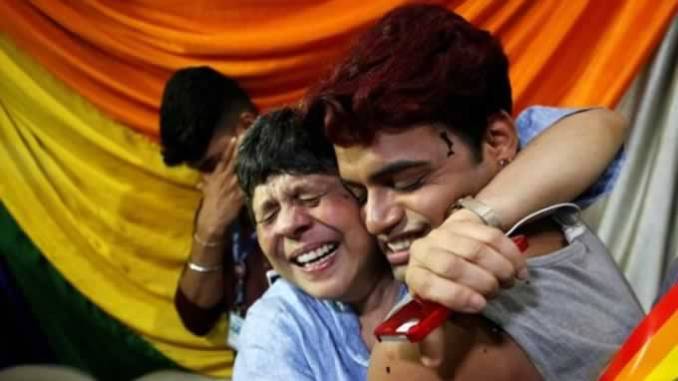India’s supreme court has decriminalised gay relationships following a unanimous verdict handed down by a five-judge panel on Thursday. Homosexuality
India’s supreme court has decriminalised gay relationships following a unanimous verdict handed down by a five-judge panel on Thursday. Homosexuality is considered a taboo by many in socially-conservative India. According to Channel NewsAsia, the court heard petitions challenging section 377 of the Indian constitution, a colonial-era law, under which same-sex relationship is an unnatural offence punishable by a 10-year jail term.
While reading out the judgement, Dipak Misra, the judge, said: “The law had become a weapon for harassment for the LGBT community. Any consensual sexual relationship between two consenting adults – homosexuals, heterosexuals or lesbians – cannot be said to be unconstitutional. Any discrimination on the basis of sexual orientation violates fundamental rights. The constitution is a living organic document; pragmatic interpretation has to be given to combat rigorous inequality and injustice. Social morality cannot be used to violate the fundamental rights of even a single individual; constitutional morality cannot be martyred at the altar of social morality.”
The verdict sparked celebrations among members of the lesbian, gay, bisexual and transgender (LGBT) groups across the nation. According to some activists, the law banning homosexuality had been used to harass and intimidate people.
“We become equal citizens with the removal of section 377. Equal rights are accessible for us with this decriminalisation,” Ashok Kavi, one of the petitioners in the case, said.


